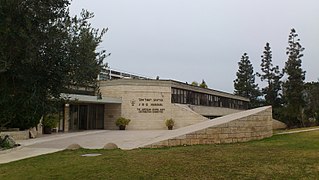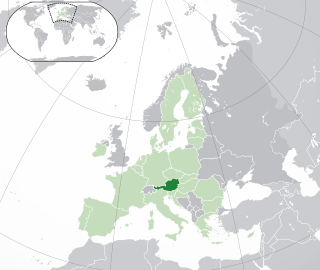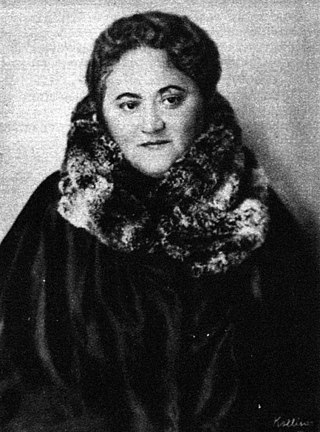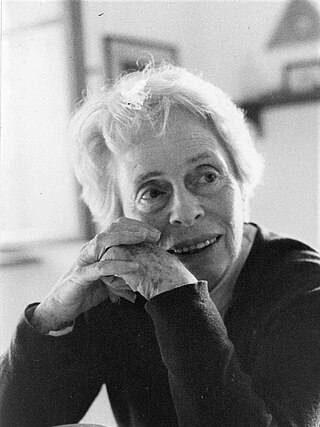
The Kindertransport was an organised rescue effort of children from Nazi-controlled territory that took place in 1938–1939 during the nine months prior to the outbreak of the Second World War. The United Kingdom took in nearly 10,000 children, most of them Jewish, from Germany, Austria, Czechoslovakia, Poland, and the Free City of Danzig. The children were placed in British foster homes, hostels, schools, and farms. Often they were the only members of their families who survived the Holocaust that was to come. The programme was supported, publicised, and encouraged by the British government, which waived the visa immigration requirements that were not within the ability of the British Jewish community to fulfil. The British government placed no numerical limit on the programme; it was the start of the Second World War that brought it to an end, by which time about 10,000 kindertransport children had been brought to the country.

American Jewish Joint Distribution Committee, also known as Joint or JDC, is a Jewish relief organization based in New York City. Since 1914 the organisation has supported Jewish people living in Israel and throughout the world. The organization is active in more than 70 countries.

Victor Josef Papanek (22 November 1923 – 10 January 1998) was an Austrian-born American designer and educator, who became a strong advocate of the socially and ecologically responsible design of products, tools, and community infrastructures. His book Design for the Real World, originally published in 1971 and translated into more than 24 languages, had lasting international impact.

The history of the Jews in Austria probably begins with the exodus of Jews from Judea under Roman occupation. There have been Jews in Austria since the 3rd century CE. Over the course of many centuries, the political status of the community rose and fell many times: during certain periods, the Jewish community prospered and enjoyed political equality, and during other periods it suffered pogroms, deportations to concentration camps and mass murder, and antisemitism. The Holocaust drastically reduced the Jewish community in Austria and only 8,140 Jews remained in Austria according to the 2001 census. Today, Austria has a Jewish population of 10,300 which extends to 33,000 if Law of Return is accounted for, meaning having at least one Jewish grandparent.

Eugenie Schwarzwald, and died on 7 August 1940, in Zurich, founded the innovative Schwarzwald school. A progressive Austrian philanthropist, writer and pedagogue, she developed education for girls in Austria and was one of the most learned women of her time.

HIAS is a Jewish American nonprofit organization that provides humanitarian aid and assistance to refugees. It was established on November 27, 1881, originally to help the large number of Russian Jewish immigrants to the United States who had left Europe to escape antisemitic persecution and violence. In 1975, the State Department asked HIAS to aid in resettling 3,600 Vietnam refugees. Since that time, the organization continues to provide support for refugees of all nationalities, religions, and ethnic origins. The organization works with people whose lives and freedom are believed to be at risk due to war, persecution, or violence. HIAS has offices in the United States and across Latin America, Europe, Africa, and the Middle East. Since its inception, HIAS has helped resettle more than 4.5 million people.

The Socialist Youth Austria is the largest socialist youth organisation in Austria. Founded in 1894 as a club for apprentice protection, it was initially called Association of Young Workers. Although not part of the Social Democratic Party of Austria (SPÖ), there is a close relationship between the two organisations. The SJÖ is actively integrated within the committees of the SPÖ.
The One Thousand Children (OTC) is a designation, created in 2000, which is used to refer to the approximately 1,400 Jewish children who were rescued from Nazi Germany and other Nazi-occupied or threatened European countries, and who were taken directly to the United States during the period 1934–1945. The phrase "One Thousand Children" only refers to those children who came unaccompanied and left their parents behind back in Europe. In nearly all cases, their parents were not able to escape with their children, because they could not get the necessary visas among other reasons. Later, nearly all these parents were murdered by the Nazis.

The Central British Fund for World Jewish Relief formerly Central British Fund for German Jewry (CBF) which currently operates under the name World Jewish Relief (WJR), is a British charitable organisation and the main Jewish overseas aid organisation in the United Kingdom.

Œuvre de secours aux enfants, abbreviated OSE, is a French Jewish humanitarian organization which was founded in Russia in 1912 to help Russian Jewish children. Later it moved to France.

Mira Lobe was an Austrian writer of more than 100 children's books.
The history of the Jews in Vienna, Austria, goes back over eight hundred years. There is evidence of a Jewish presence in Vienna from the 12th century onwards.

Judith Hemmendinger was a German-born Israeli researcher and author who specialised in child survivors of the Holocaust. During World War II, she was a social worker and refugee counselor for the Œuvre de secours aux enfants (OSE), a French Jewish children's aid organization based in Geneva, and from 1945 to 1947, she directed a home for child survivors of Buchenwald in France. She authored books and papers on the Holocaust experiences and later lives of child survivors. She was awarded the French Legion of Honor in 2003.

Edmund Engelman was a Jewish Austrian (Viennese), and later American, photographer and engineer who became famous for photographing the home and workplace of Sigmund Freud at Berggasse 19 in Vienna, shortly before the Freud family escaped Austria for England in 1938.
Max Windmüller was a German member of the Dutch resistance. He was forced to flee from the National Socialists to the Netherlands with his parents because of their Jewish faith. He joined the Westerweel Group there and saved the lives of many Jewish children and young people. The members of the Westerweel group organized identification papers, hiding places and escape opportunities, especially for German-Jewish children and young people who had fled from Germany. In this group, Jews and members of other faiths worked together to save the Jews from persecution. Such cooperation was not a matter of course in the Netherlands. Windmüller personally saved around 100 young Jews, and the entire Westerweel group saved 393 Jews. In July 1944, the Gestapo stormed a secret meeting of the Resistance group in Paris in which Windmüller and other members of the Jewish resistance were arrested. They were then taken to Gestapo headquarters where they were interrogated and tortured. When the liberation of the camp by Allied troops was imminent, Windmüller was deported from occupied France with the last transport. On 21 April 1945, he was shot by a Schutzstaffel member.

Adele "Dele" Kurzweil was an Austrian girl of Jewish origin who was tracked down by Nazi Germany and murdered in Auschwitz concentration camp at arrival. Her fate became widely known after suitcases had been discovered in 1990 at her family's last refuge in the southern French town of Auvillar.

Maria Dorothea Simon was an Austrian psychologist and scholar of social work. Born into a Jewish family in Vienna near the end of the First World War, she was educated in Austria and Czechoslovakia but emigrated to London after the latter was annexed by Germany in 1938. While in the United Kingdom, she worked at the Hampstead Nurseries, an experimental child care centre run by the psychoanalyst Anna Freud. She was married to the jurist and resistance activist Joseph Simon.

Friedrich Waerndorfer, originally Wärndorfer, was an Austrian entrepreneur, patron of the arts, and founding member of the Wiener Werkstätte. He was also known as Fred Warndorf.
Peter Strasser was an Austrian politician of the Socialist Party of Austria (SPÖ) and Chairman of the Socialist Youth Austria (SJÖ).
Gustav Fritz Papanek was an Austrian American development economist.















